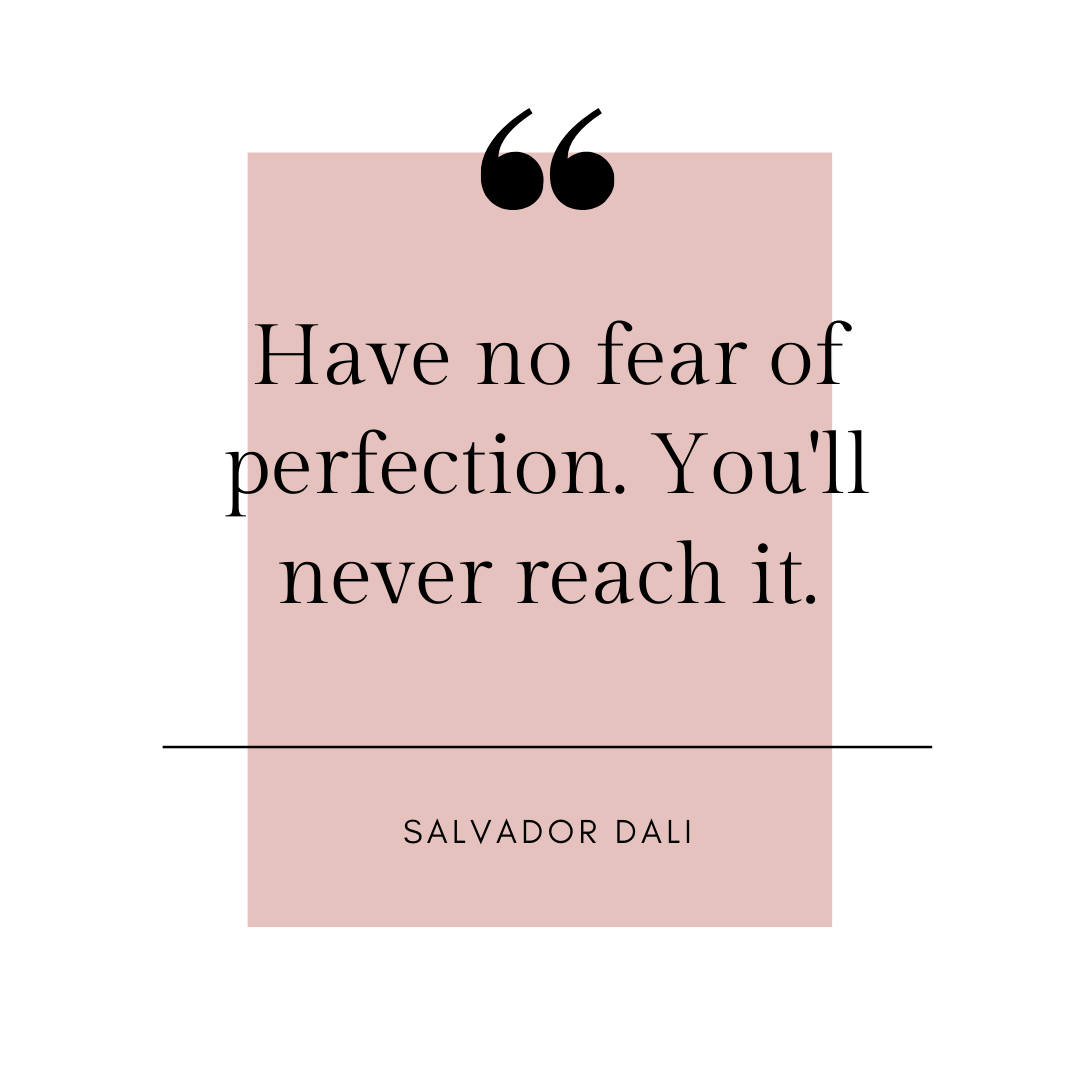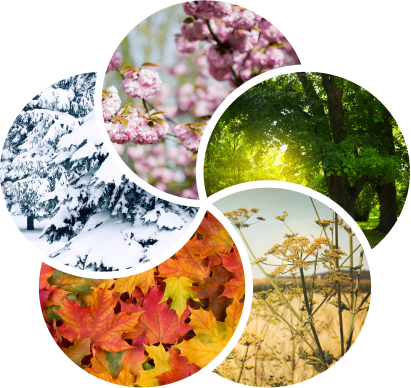I recently came across a quote from Salvador Dali that warms my little recovering perfectionist heart.
He’s right, there’s absolutely no reason to fear perfection or hold it as a standard to reach.
Why?
Because it’s wholly impossible.
It’s great to have goals.
It can be great to have high standards.
But it’s not great to hold yourself to a totally unrealistic ideal then criticize yourself and feel ashamed when you inevitably can’t reach it.
If instead of guilt and judgment for ourselves and others we take a step back, we accomplish a couple things:
#1 We have space to appreciate our efforts. YAY!
#2 We can pivot. DOUBLE YAY!
Perfectionism keeps us on a narrow path.
We end up with tunnel vision toward our goal and we ignore helpful signposts along the way because, well, they’re just distractions and will delay us achieving what we’re striving for.
This sequence becomes a circular, self-fulfilling prophecy that drags us away from our goal and toward chaos.
Weird to think of perfectionism causing chaos, right?
Think about how you feel when you’ve pushed so hard you’re hanging on for dear life and won’t accept something being finished until it’s just the way you envisioned it.
That emotional state is pretty chaotic.
We aren’t like Data, the android from Star Trek.
We are inherently emotionally attached to outcomes, moreso when we’ve poured time, energy, and effort into our cause.
The harder we strive toward the impossible, the less likely we are to let it go.
It’s a bit like hazing practices in fraternities, sororities, or sports teams.
When people freely choose to undergo a difficult initiation, it often increases their commitment. They need to believe the membership price was worth it; otherwise, they’re fools for choosing to endure it, and for choosing a group that would do that to them. Perhaps this is why Allan et al. (2019) found hazed students reported positive outcomes to being hazed such as feeling more a part of a team or group (62.8%); feeling a sense of accomplishment (54%), and feeling stronger (35.7%). Maybe they needed to justify their efforts. source
Perfectionism can be like upperclassmen goading you into something you know is fruitless, but that you feel you have to endure in order to achieve your goal.
The more painful the process, the harder we hold on, and thus the self-fulfilling prophecy is well, fulfilled.
It can take a lot to wake up and realize maybe there was a better path to turn down a few miles ago.
That maybe achieving our goal doesn’t have to involve devaluing ourselves and potentially others in service of an impossible standard.
We lose one of our greatest assets when we focus on perfectionism: adaptability.
We become rigid, single-minded, and mechanical in our progress toward our desired outcome.
But we’re not machines.
Perseverance and productivity can only take us so far.
And thank goodness for that.
Our nature is organic, flexible, and regenerative.
We’re meant to ride the waves of our energy and embrace the natural peaks and lulls when they happen.
In those crucial moments of slowness our perspective can expand and we get a chance to assess whether or not we’re headed in the direction we actually want to be going.
When we become fluid and adaptable, we often create a better outcome for ourselves than if we remain locked into our original plan.
Planning is our best to guess at how the things will proceed, but we never truly know until we get in there and try.
Stopping the perfection train gives new life to your goal, allowing it to unfold in unexpected and beautiful ways that you couldn’t have imagined at the start.
So embrace the natural ebbs and flows in your work and rest cycles.
Remember to stop, take a breath, and ask your heart if where you’re headed is actually where you want to go.
We don’t need to fear or covet perfection.
We need to see it for what it really is: an unattainable myth that entices us away from and devalues our true nature.
Let’s embrace our unique ability to grow, change, and repair rather than remain static and eventually break down like a lawnmower.
Those assets are far beyond what perfectionism could ever offer us.




